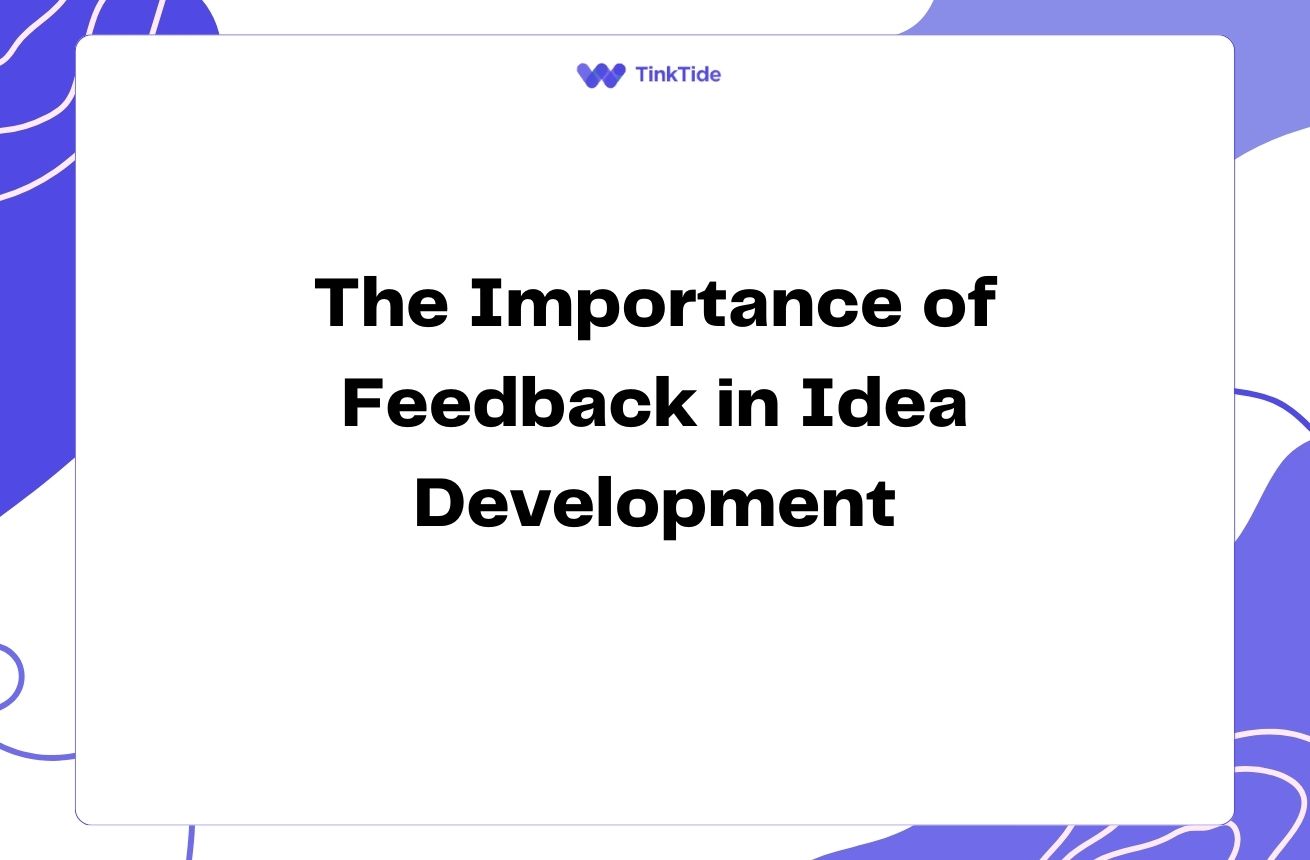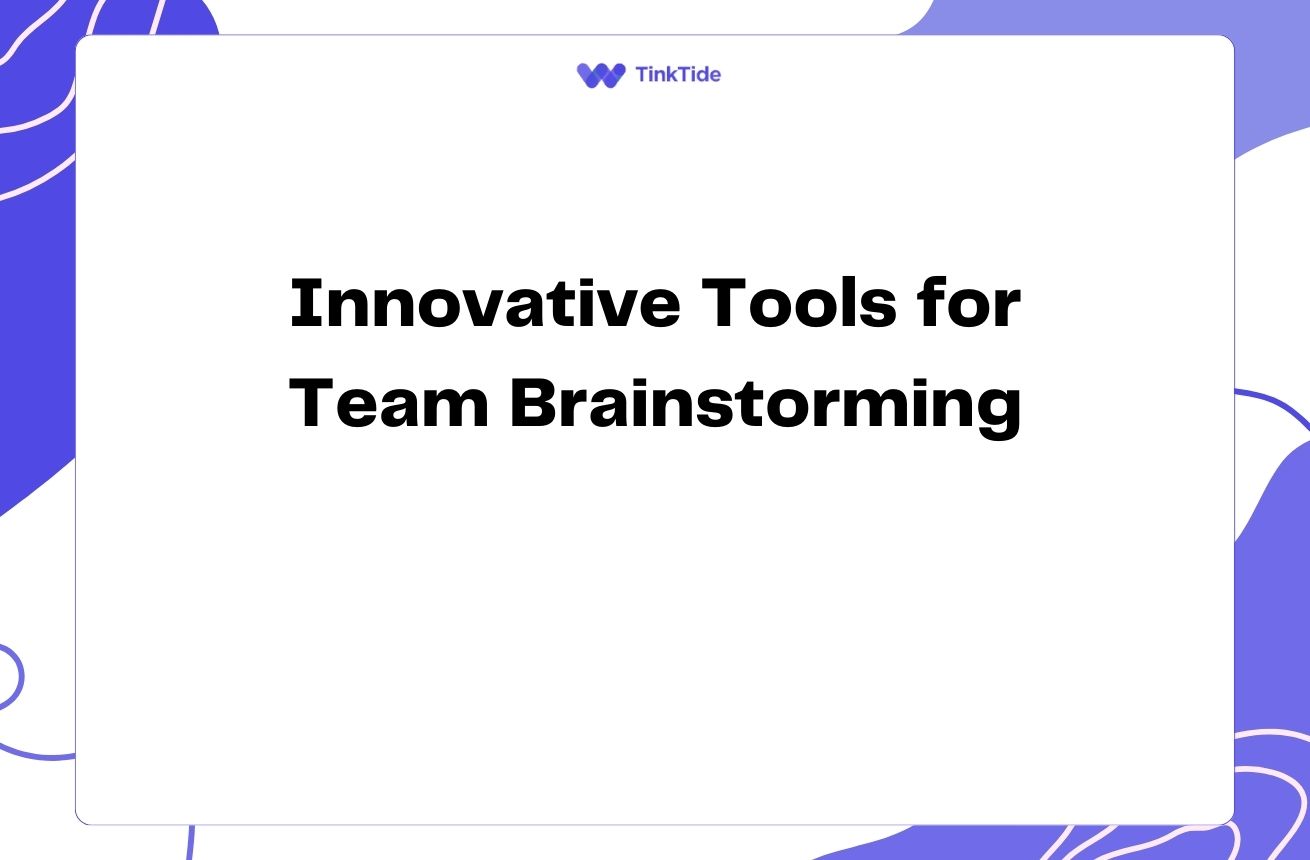AI's Transformative Role in Modern Brainstorming Sessions
The Evolution of Brainstorming
Brainstorming has long been a cornerstone of innovation and problem-solving in businesses. However, traditional methods often fall short in today's fast-paced, digital-first world. Enter Artificial Intelligence (AI), the game-changer that's revolutionizing how we generate and develop ideas.
AI-powered brainstorming tools are not just a trend; they're becoming essential in modern workplaces. These intelligent systems can process vast amounts of data, recognize patterns, and generate novel ideas at a speed and scale unattainable by human minds alone.
By leveraging AI in brainstorming sessions, teams can overcome common hurdles like groupthink, idea fatigue, and limited perspectives. This technology acts as a catalyst, sparking creativity and pushing the boundaries of what's possible.
As we delve deeper into this topic, we'll explore how AI is transforming brainstorming from a potentially stagnant exercise into a dynamic, productive, and innovative process.
Key Benefits of AI in Brainstorming
Incorporating AI into brainstorming sessions offers numerous advantages that can significantly enhance the creative process:
- Unbiased idea generation, free from human preconceptions
- Rapid processing of vast amounts of information for informed ideation
- 24/7 availability, allowing for continuous ideation
- Ability to combine ideas in unique and unexpected ways
- Personalized suggestions based on team dynamics and past performance
AI-Powered Brainstorming Tools
Several cutting-edge AI tools are making waves in the realm of creative ideation. OpenAI's GPT-3, for instance, can generate human-like text based on prompts, offering a wellspring of ideas and perspectives.
Another notable tool is IBM's Watson, which can analyze unstructured data to uncover insights and suggest innovative solutions. These AI assistants act as virtual team members, contributing ideas and helping to refine concepts.
Visual brainstorming tools like Adobe's Generative Fill use AI to create and manipulate images, opening up new avenues for visual ideation and concept development.
As these tools continue to evolve, they're becoming increasingly sophisticated in understanding context, generating relevant ideas, and even predicting which concepts are likely to succeed.
Implementing AI in Your Brainstorming Process
Integrating AI into your brainstorming sessions doesn't have to be complicated. Start by identifying the specific challenges in your current process that AI could address. Are you struggling with idea diversity? Do you need help organizing and categorizing ideas?
Next, choose an AI tool that aligns with your needs. Many offer user-friendly interfaces that require no coding knowledge. Gradually introduce the tool to your team, allowing them to experiment and become comfortable with its capabilities.
Remember, AI should complement human creativity, not replace it. Use AI-generated ideas as springboards for further discussion and development. Encourage your team to interact with the AI, asking it questions and refining its outputs.
Regularly evaluate the impact of AI on your brainstorming sessions. Are you seeing an increase in the quantity and quality of ideas? Is the process more efficient? Use these insights to fine-tune your approach and maximize the benefits of AI-assisted brainstorming.
Overcoming Challenges in AI-Assisted Brainstorming
While AI offers tremendous potential, it's not without challenges. One common concern is the potential loss of the human touch in ideation. To address this, maintain a balance between AI-generated ideas and human intuition.
Another challenge is the learning curve associated with new technologies. Provide adequate training and support to ensure your team can effectively leverage AI tools. Encourage a culture of experimentation and learning.
Data privacy and security are also crucial considerations. Choose AI tools that adhere to robust security standards and comply with relevant data protection regulations.
Lastly, be mindful of potential biases in AI algorithms. Regularly audit the AI's outputs for any signs of bias and work with diverse teams to ensure a wide range of perspectives are considered.
The Future of AI in Brainstorming
As AI technology continues to advance, we can expect even more exciting developments in the field of creative ideation. Here's a glimpse into what the future might hold:
- AI that can understand and respond to emotional cues during brainstorming
- Virtual reality integration for immersive, AI-guided ideation sessions
- AI systems that can autonomously implement and test ideas
- Predictive analytics to forecast the potential success of generated ideas
- Cross-disciplinary AI that can draw insights from diverse fields for innovative solutions
Frequently Asked Questions
Let's address some common questions about AI in brainstorming:
Will AI replace human creativity in brainstorming?
No, AI is designed to enhance human creativity, not replace it. It serves as a tool to augment our capabilities, providing new perspectives and processing power that complement human intuition and experience.
How can small businesses benefit from AI-assisted brainstorming?
Small businesses can leverage AI to level the playing field with larger competitors. AI tools can provide access to vast knowledge bases and generate diverse ideas, helping small teams punch above their weight in innovation.
Are there any industries where AI brainstorming is particularly effective?
While AI can benefit brainstorming in any industry, it's particularly effective in fields like product design, marketing, scientific research, and software development, where rapid ideation and data-driven insights are crucial.
How do you measure the success of AI-assisted brainstorming?
Success can be measured through metrics like the quantity and quality of ideas generated, the speed of ideation, the diversity of concepts, and the ultimate impact of implemented ideas on business outcomes.
What skills do team members need to effectively use AI in brainstorming?
While technical skills can be helpful, the most important qualities are openness to new technologies, critical thinking to evaluate AI-generated ideas, and the ability to collaborate effectively with both human and AI team members.
How can we ensure AI-generated ideas align with our brand and values?
Train your AI tools with your brand guidelines and company values. Regularly review and filter AI outputs to ensure alignment, and always have human oversight in the final selection and implementation of ideas.
Additional Resources
AI for Creativity: A Comprehensive Guide
An in-depth course on leveraging AI for creative processes
The Creative AI Lab
A research initiative exploring the intersection of AI and creativity
AI-Powered Brainstorming Tools Comparison
A comprehensive comparison of popular AI brainstorming tools
Ethics in AI-Assisted Creativity
A scholarly article discussing ethical considerations in AI creativity
Future of Work: AI in Innovation
World Economic Forum's perspective on AI's role in future innovation
Embracing the AI-Powered Brainstorming Revolution
AI is undeniably transforming the landscape of creative ideation and problem-solving. By embracing AI-powered brainstorming, teams can unlock new levels of creativity, efficiency, and innovation.
Remember, the goal is not to replace human creativity but to augment it. AI serves as a powerful tool that, when used effectively, can help teams overcome limitations, explore new possibilities, and drive breakthrough innovations.
As we move forward, it's crucial to stay informed about AI advancements and continuously adapt our brainstorming processes. By doing so, we can ensure that our ideation sessions remain at the cutting edge, driving progress and innovation in our respective fields.
Supercharge Your Brainstorming with AI
Ready to revolutionize your team's ideation process? Try our AI-powered brainstorming tool today!
Start Your Free Trial

